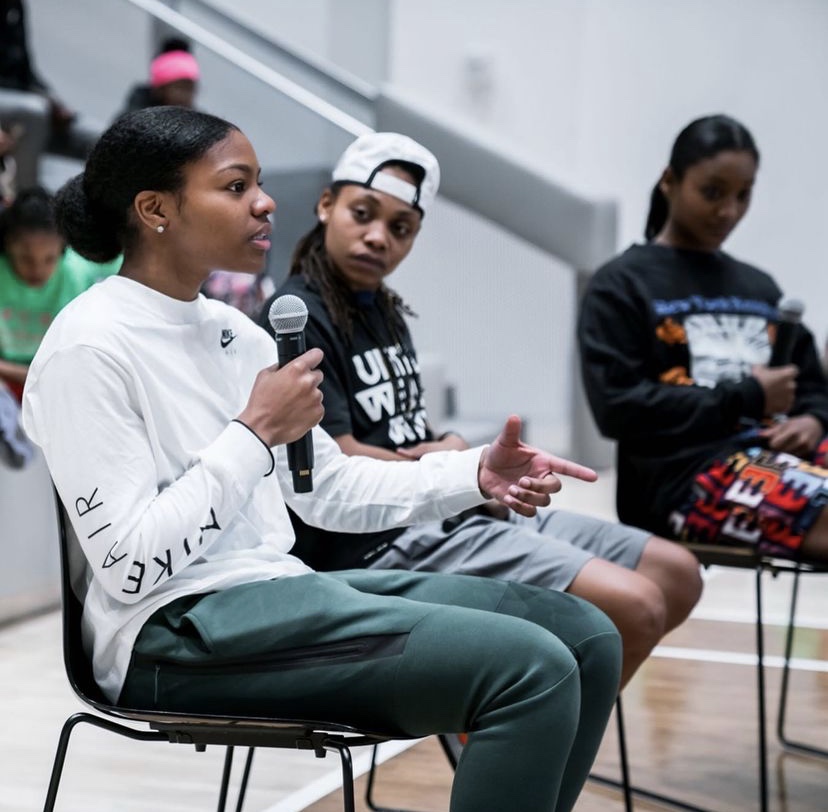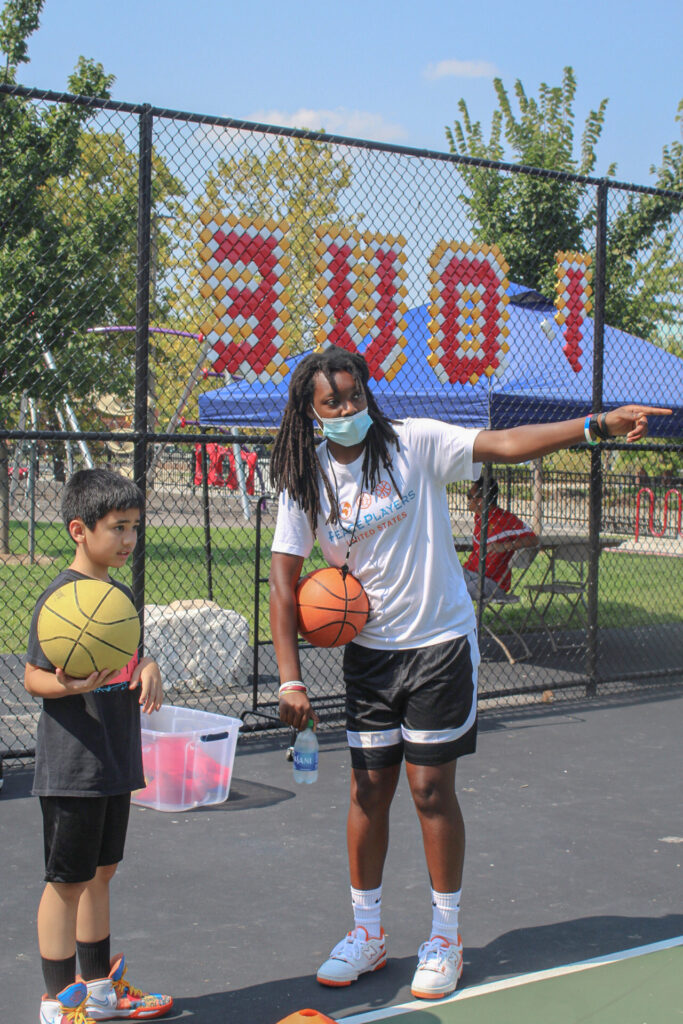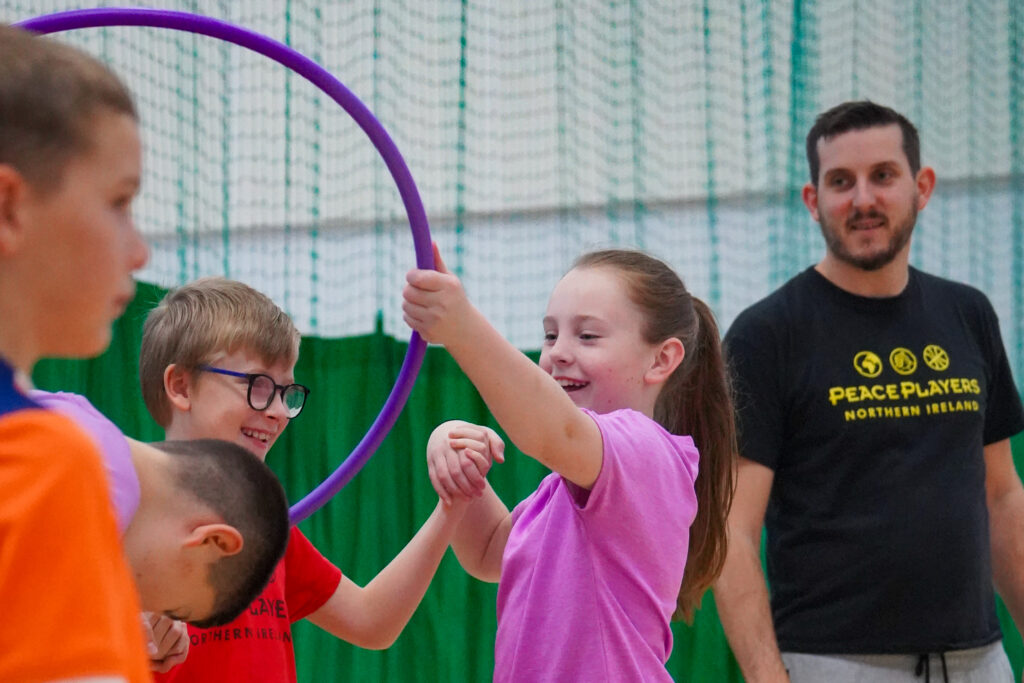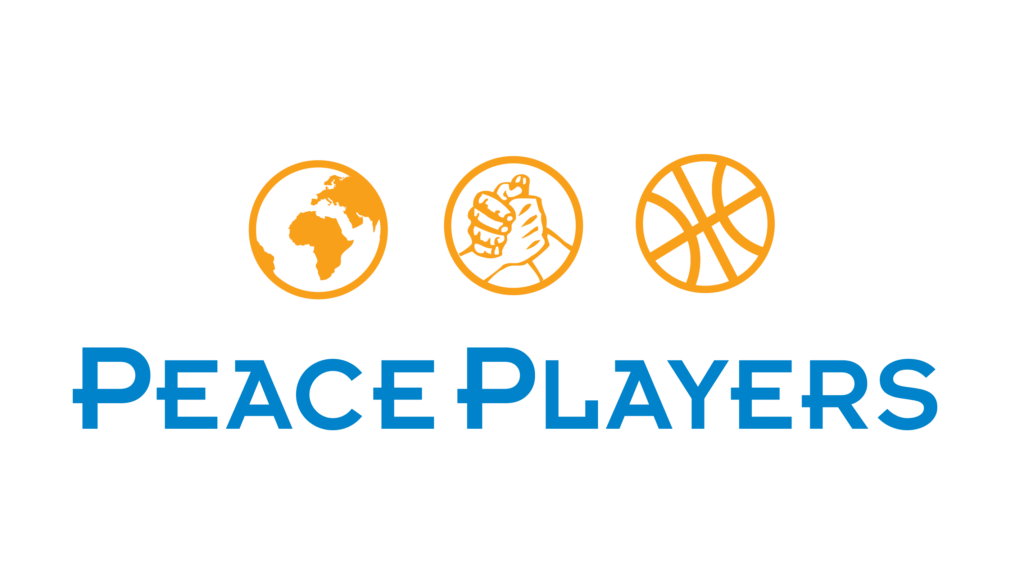Northern Ireland: Catching Up with Una and Alex
March 20, 2024
SHARE
We talked to Onyeka Arah, a PeacePlayers alumna and current board member, as well as with PeacePlayers Brooklyn Director Alesha Smith, about the vital role basketball has played in their lives and the transformative power it holds for the youth people of PeacePlayers U.S.

PeacePlayers: Tell us a little bit about yourself.
Alesha: Although I have a very Southern accent, I was actually born in Brooklyn, but I was raised in Athens, Georgia. I grew up in a basketball family and I played my entire life. When it finally came time to put my sneakers up for good, I decided that I wanted to go into a career dedicated to empowering people. When I was later introduced to PeacePlayers, I totally fell in love. Beyond just putting kids on a basketball court, they were teaching those conflict resolution skills, teaching those peacebuilding skills, teaching those leadership skills. It was clear that the work was bigger than just
basketball so it was a no-brainer saying “yes” to the Director role. I have spent almost a decade working in the NYC nonprofit sector and I am proud to say that my work is dedicated to the intersection of sport and social change. At PeacePlayers I am able to combine my love for social justice, my love for community, and my love for basketball into this one thing.
Onyeka: I am a first generation Nigerian American, born and raised in Silver Spring, Maryland. Currently, I am a Junior at the University of Maryland, studying sociology and public policy with a focus on nonprofit leadership and social innovation. I grew up playing basketball, first and foremost. I actually participated in the first [PeacePlayers] United States Leadership Development Program. We were coached in basketball and leadership skills, and ended up culminating that experience with a trip to the Middle East. So traveling to the Middle East, and just finding out how global this movement is, and how sport can change people's lives, that's really what brought me to where I am today. More recently, I was a youth development coach and then an Up2Us coach [at PeacePlayers Baltimore], and then from there I did the PeacePlayers Fellowship. And now I'm a PeacePlayers U.S. Board Member.
PeacePlayers: What’s the purpose of PeacePlayers in the communities where you work?
Onyeka: So, Baltimore is unique in that the city has been historically divided. There's what they call the Black Butterfly and the White L. So you have two sides of the city that have been disinvested in and people are experiencing hardship and socioeconomic disadvantage. But culturally, people have similar experiences, whether they live on the East Side or the West Side. And then you have the White L, which breaks up that Black Butterfly. That's where you have investments and opportunities and things like that. So with PeacePlayers Baltimore, we bring [the East Side and the West Side] together. It works because they know that they're all PeacePlayers at the end of the day.

Sports can be a safe haven for kids. But if basketball is an escape, we want them to walk away with tools that allow them to not necessarily always have to just run away from how they're feeling, but to actually be able to address and manage what's going on."
- Onyeka
Alesha: PeacePlayers breaks down community barriers, puts kids on a basketball court, and uses the game to really bridge the divides that are in those communities. In Brooklyn, we got our start in Brownsville, but now have ventured into other neighborhoods that deal with similar issues that Brownsville faces… so, Crown Heights, Bedford-Stuyvesant, East New York, and Canarsie. Though the divides (gun and gang violence,etc) are ever present, we have seen first hand the transformational impact that sport can have on bringing communities together. Beyond bridging divides, another focus of our work is creating equitable opportunities. I think an issue that's not really spoken about enough is how access to free, expert led basketball programming is hard to come across in this pay-to-play model in New York City. To get access to great basketball instruction and opportunity, you oftentimes have to have money. PeacePlayers is breaking down that barrier and providing real access to free sports development coaches who understand the importance of the holistic development of young people, but also are really skilled and understand how to incorporate the basketball and life skill pieces together.
"I have always said that the basketball court is a classroom. You learn so many life lessons from the game that go beyond the game. I still lean on the life lessons that basketball has taught me."
- Alesha
PeacePlayers: What does playing basketball bring to the table for kids?
Alex: Sport provides something much more than just that physical benefit, but actually, the social, social skills as well a way to interact with others. And I think in an age where a lot of that's gone online and people are unable to connect in real life, what PeacePlayers and basketball as a sport can offer is really, really significant. Whenever I coach, I'm like, you're not loud enough. Talk to each other, let each other know what you're experiencing, what you're feeling. And that's on the court. But also that goes off the court. When you start to see people developing those relationships, they're able to be more verbal, to let others know what they want. They're able to maybe grow in confidence and share for themselves. But that then translates going into university, that translates then going into employment.

"Sport provides something much more than just that physical benefit, but actually, the social, social skills as well a way to interact with others."
- Alex
PeacePlayers: A lot of young people around the world are growing up in increasingly divided societies. How can basketball make a difference in this?
Una: What you're doing there is not about basketball. It's about bringing people together to allow for the conversations to open. And once you've done that, then that's where it's going to start to bridge the divide. I mean, because people have this love for sport, then that's going to bring all those different cultures together. It's creating opportunity. It's creating a platform to have the conversations that need to be had. Alex, would you agree?
"What you're doing there is not about basketball. It's about bringing people together to allow for the conversations to open."
- Una
Alex: Yeah, I think it looks like it's just a game of basketball, but if it impacts a family, then that starts to have a ripple effect. That means another family takes that on board and another and it's just slowly eating away at the conflict.



